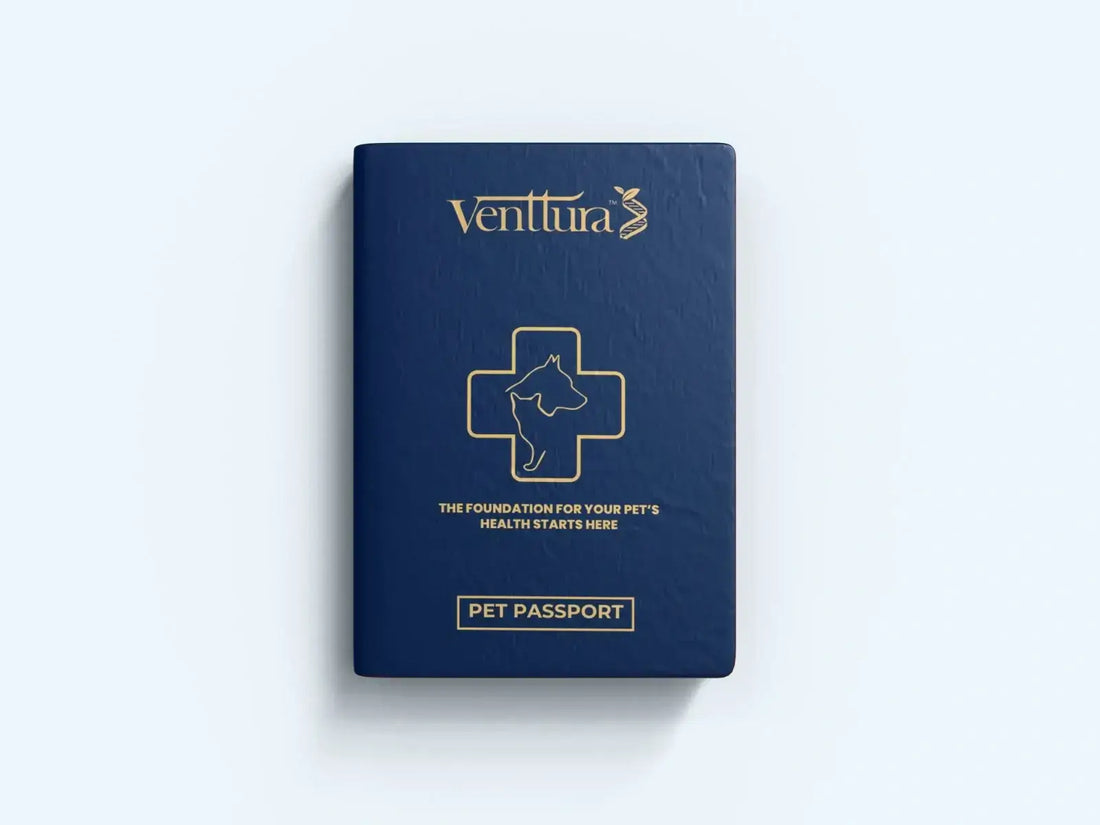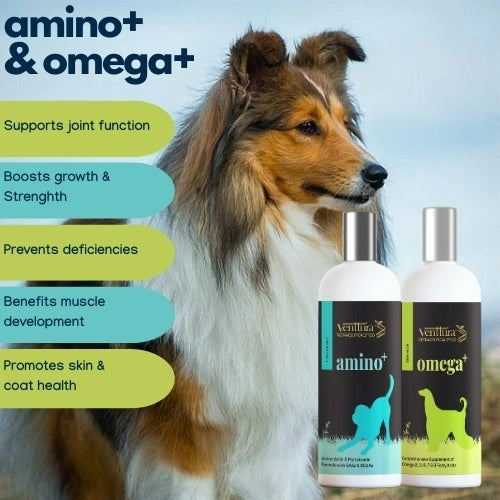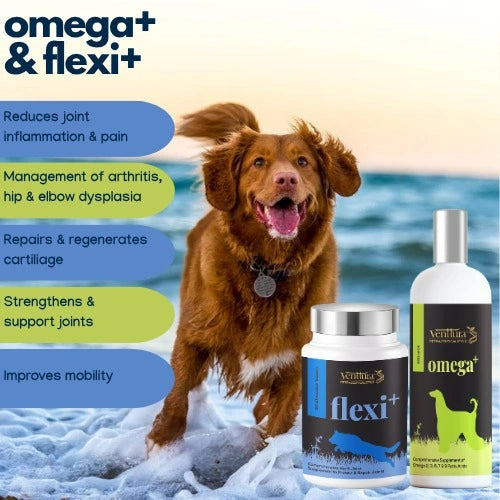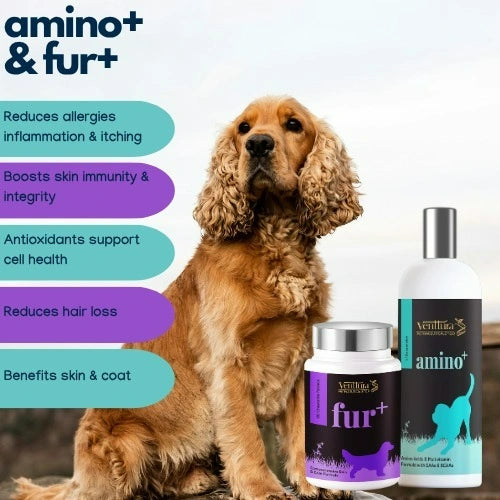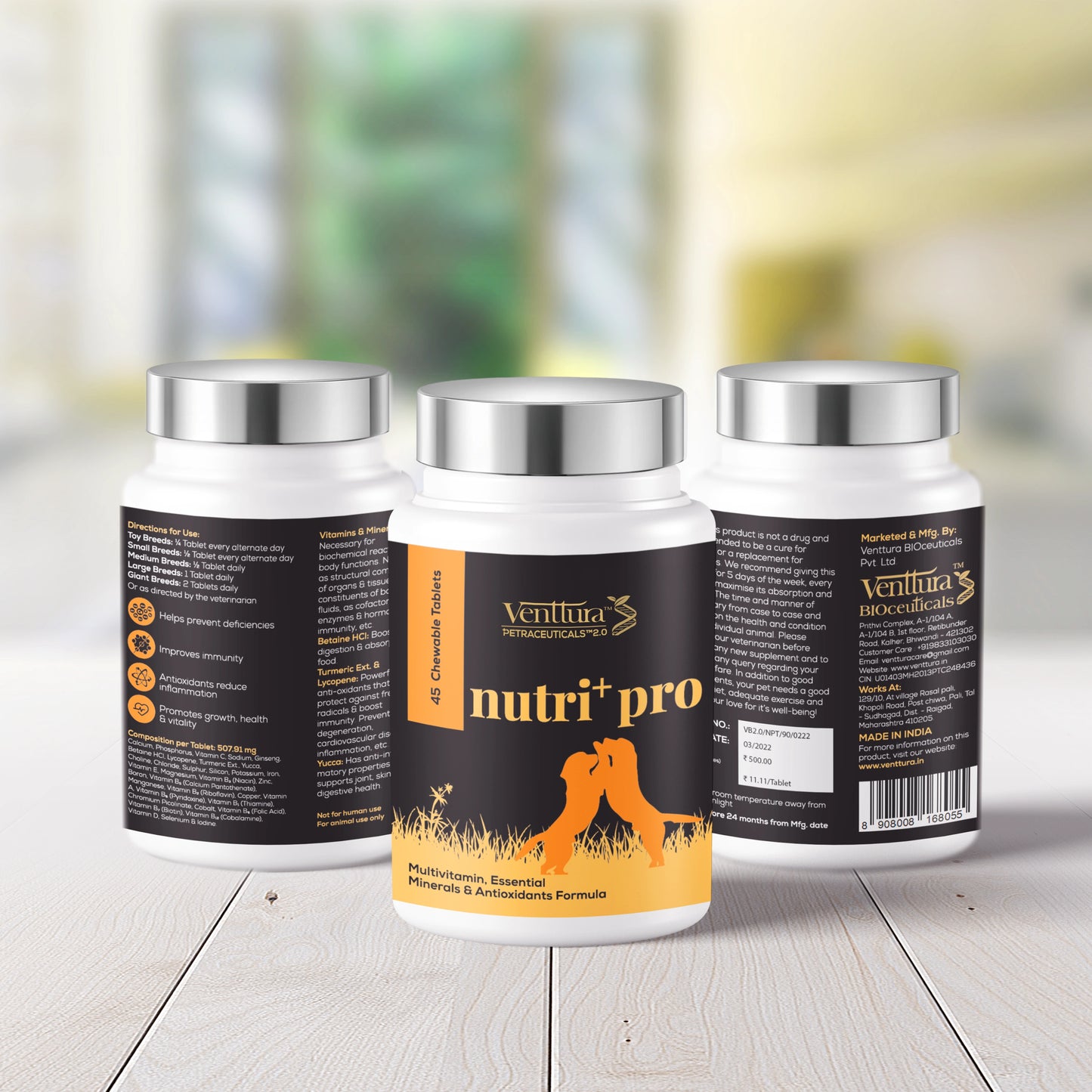

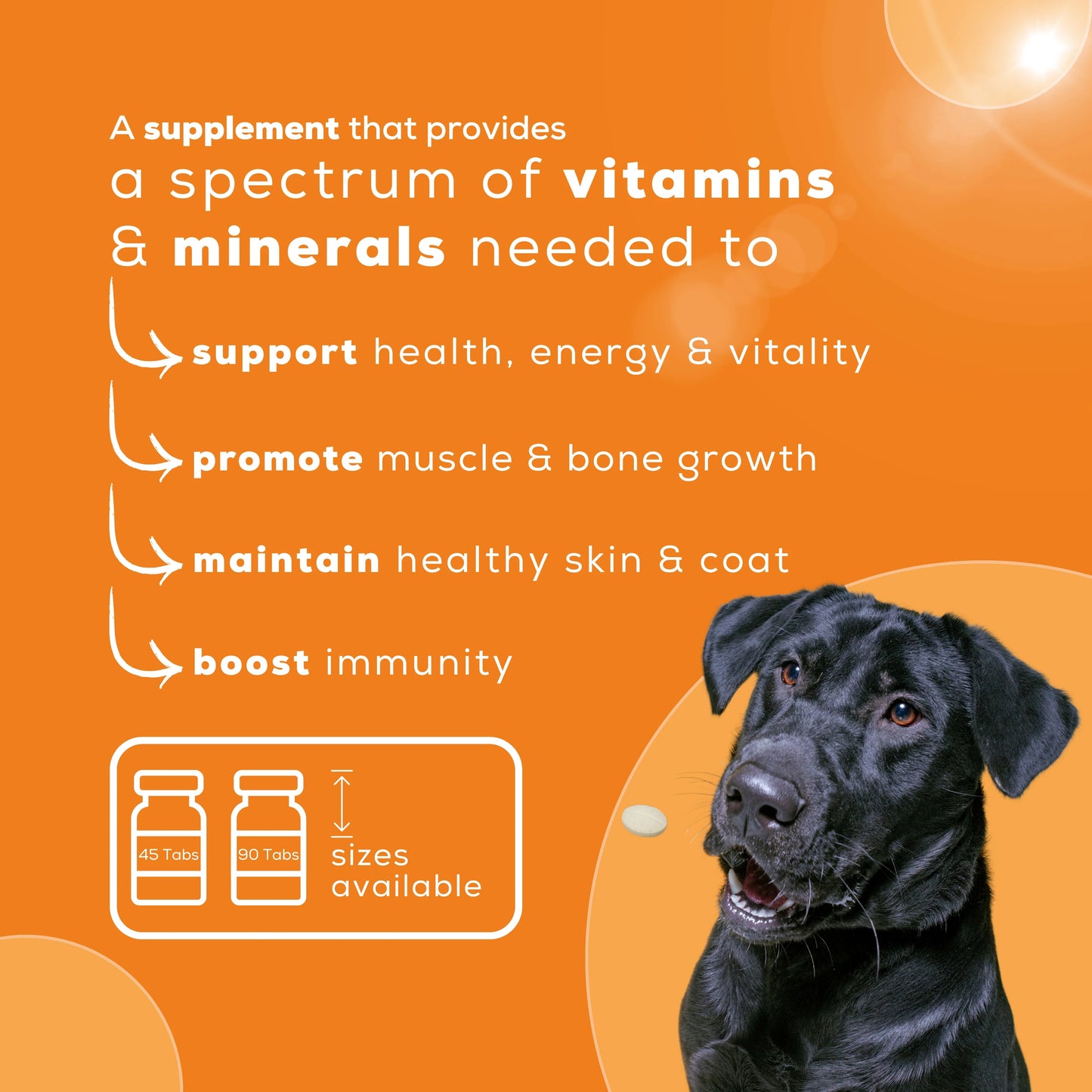
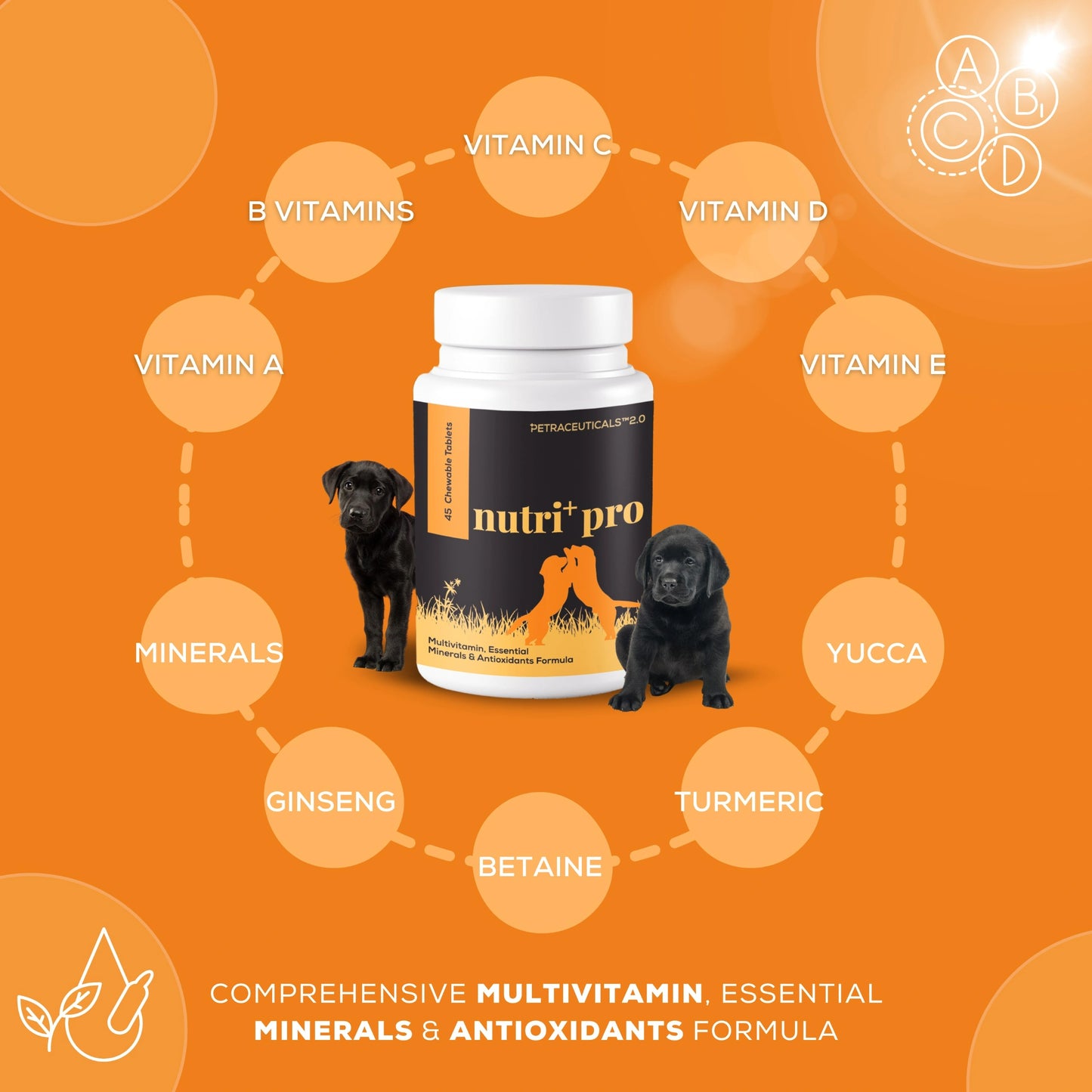
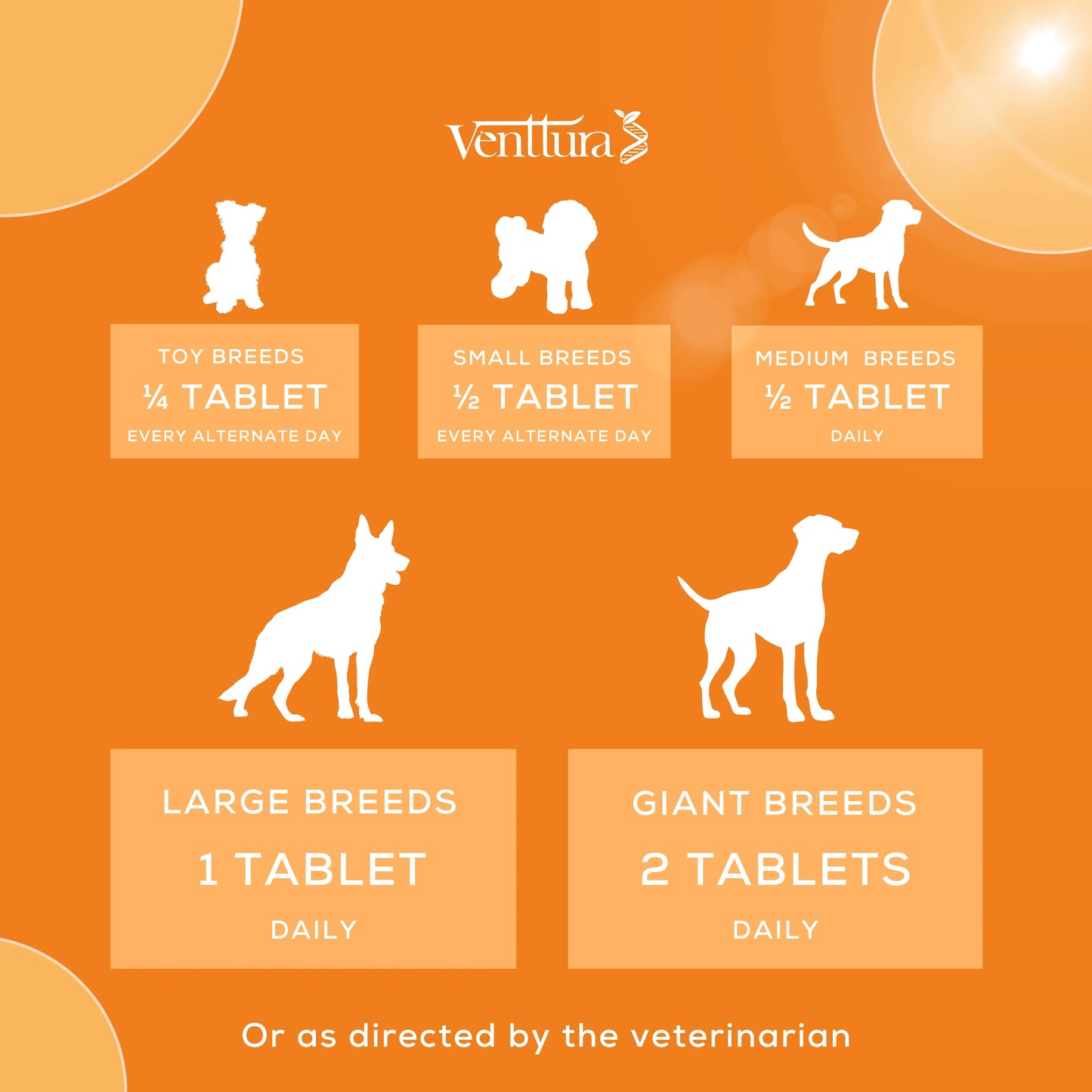
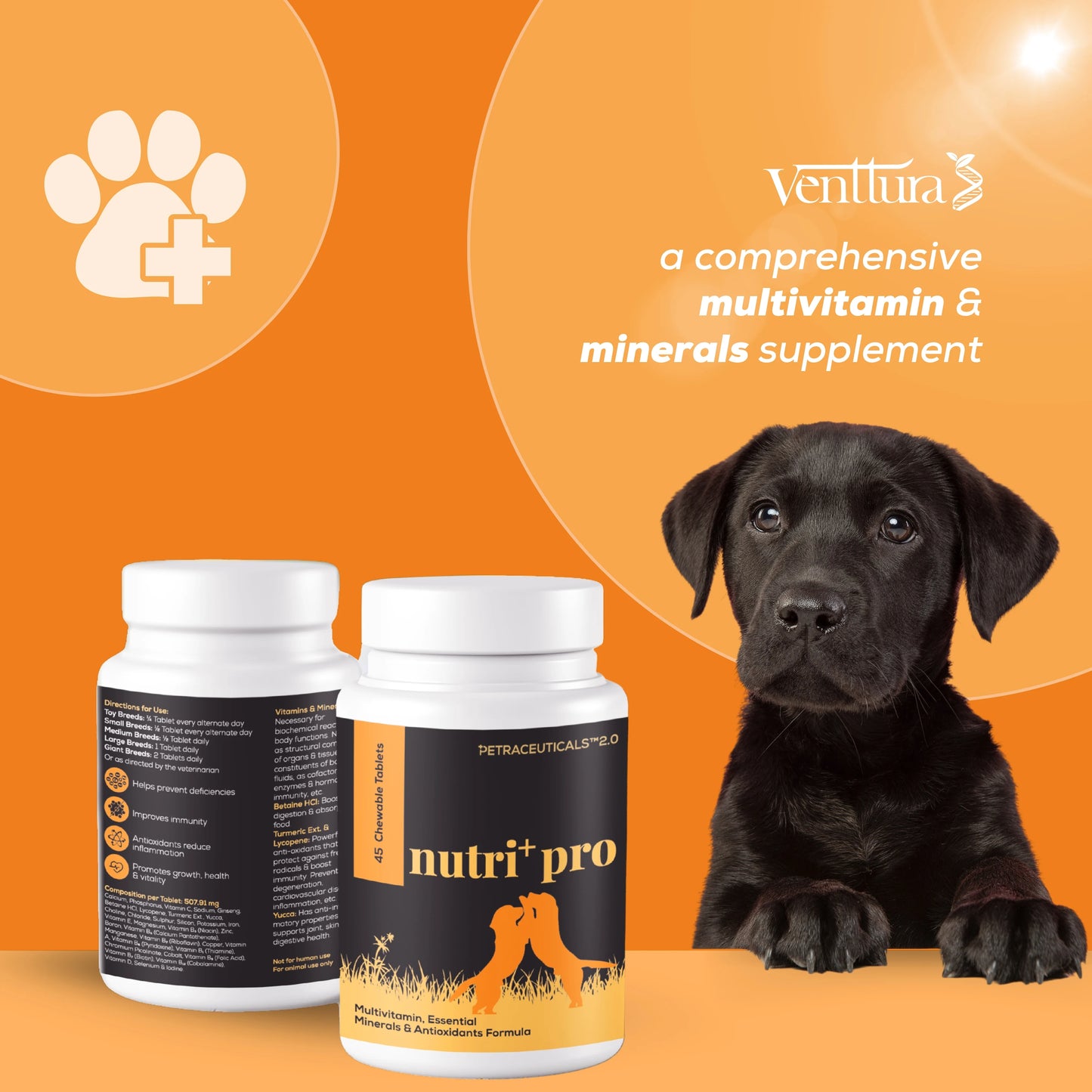
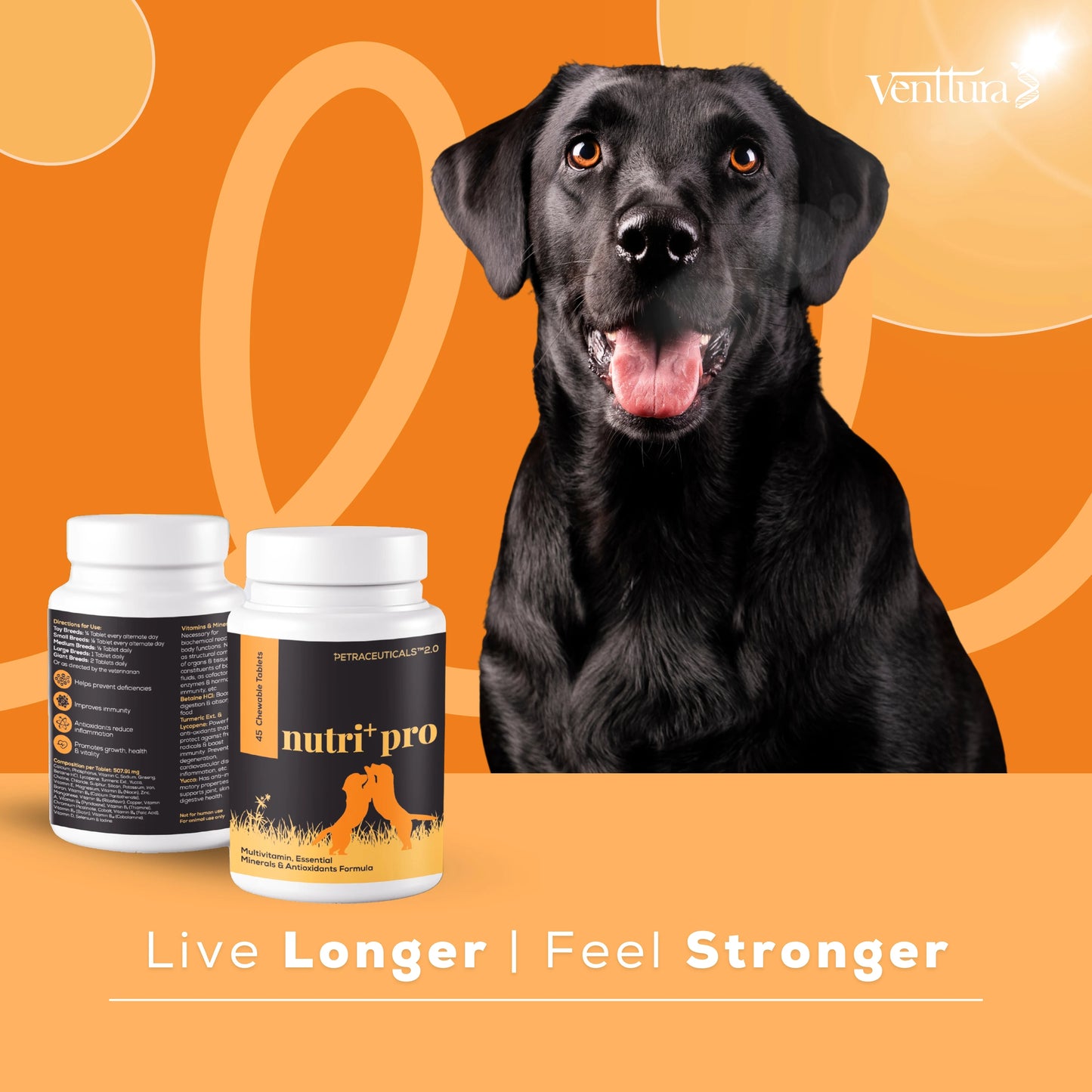
Benefits of Ingredients
-
Calcium:
Essential for healthy growth and development of the skeletal system. Also required for blood coagulation, muscle contraction and nerve transmission. Prevents milk fever or eclampsia in lactating animals.
-
Phosphorus:
Along with calcium it forms an essential component of bones. It is required for digestion, excretion, protein synthesis, hormonal balance, energy synthesis, cell repair and many metabolic reactions.
-
Ginseng:
It is a plant that has been used in traditional Chinese medicine. It acts as a stimulant to the brain, helps lower cholesterol and regulates sugar use in the body. It also helps reduce stress and fatigue and enhances heart function and blood circulation.
-
Lycopene:
It is a member of the carotenoid family. It is a powerful anti-oxidant and helps to protect against free radicals. It helps prevent cancer, cell degeneration, diabetes, cardiovascular diseases and preventing diabetes. Helps in boosting the immune system.
-
Betaine HCl:
It is the chloride salt of betaine. Betaine is an amino acid that helps to prevent deposition of fat in the liver. It also works as an antioxidant, boosts vascular function and helps regulate homocysteine levels. May help in building muscle tissue.
-
Turmeric Extract:
Curcumin is the compound that gives turmeric its beneficial properties. It is a powerful antioxidant and has anti-inflammatory properties. It helps improve liver function, strengthens the immune system, enhances joint and bone health and may help fight against cancer.
-
Yucca:
It is rich in vitamins, minerals and other nutrients. It has immunity boosting and antioxidant, anti-inflammatory & anti-itching properties and is beneficial for joint and digestive health. It has been shown to reduce odours from faeces and urine.
-
Vitamin B1 (Thiamine):
It is a water-soluble vitamin. Aids in metabolism of carbohydrates, fats and proteins, maintenance of normal growth, transmission of nerve impulses, and acetylcholine synthesis. Acts as an antioxidant that boosts kidney circulation. Essential for healthy skin, hair, eyes and liver. Helps improve the immune system.
-
Vitamin B2 (Riboflavin):
It is a water-soluble vitamin. It is part of a number of coenzymes in most cells. It is also used for the production of red blood cells and antibodies that help fight diseases. It helps prevent cataracts and aids in energy production by cells of the body. Riboflavin works with vitamin A to maintain mucous membranes and helps the absorption of iron and vitamin B6 in the intestines. Assists in metabolism of nutrients including fats, carbohydrates, and proteins, and helps activate vitamins B3 and folic acid (B9). Acts as an antioxidant and helps in removal of waste products from the kidneys.
-
Vitamin B3 (Niacin):
It is a water-soluble vitamin. It is required for carbohydrate metabolism and energy production. Needed for healthy skin and proper circulation of the blood throughout the body. The secretion of bile and stomach acids requires niacin. Niacin lowers cholesterol and helps with the synthesis of hormones.
-
Vitamin B5 (Pantothenic Acid):
It is a water-soluble vitamin. It is involved in the production of adrenal hormones and antibodies, is an essential part of coenzyme A and enhances stamina.
-
Vitamin B6 (Pyridoxine):
It is a water-soluble vitamin. Helps in amino acid metabolism, synthesis of proteins, hormones and neurotransmitters. It promotes red cell production, cardiac functioning and sodium-potassium balance, antibody formation and immune system functioning. Needed for absorption of vitamin B12.
-
Vitamin B7 (Biotin):
It is a water-soluble vitamin. Like other B Vitamins, it plays an important role in many metabolic reactions. It is necessary for maintaining healthy skin and hair. Also important for growth, digestion, muscle formation and glucose metabolism.
-
Vitamin B9 (Folic Acid):
It is a water-soluble vitamin. Plays an important role in synthesis of DNA, homocysteine metabolism, cellular division, RBC production, development of the nervous system and synthesis of neurotransmitters.
-
Vitamin B12 (Cobalamin):
It is a water-soluble vitamin necessary for energy production; for maintaining bone mineral health and to prevent osteoporosis, for nervous system function as it is needed to produce myelin – the protective sheath around nerves; for the production of acetylcholine, a neurotransmitter; for the synthesis of red blood cells; for producing the genetic materials, DNA and RNA, for production of collagen and for liver function and protection.
-
Vitamin C :
It is a water-soluble vitamin vital for synthesis of collagen, which forms a component of cartilage, tendons, etc. Acts as an antioxidant, attacking free radicals in cellular fluids formed due to cell metabolism. May help in age related as well as diabetic cataract. Helps boost immunity.
-
Vitamin A:
It is a fat-soluble vitamin. Beneficial for eyes, immune system, bone metabolism and healthy skin. Helps in organ growth in a developing foetus. Acts as an antioxidant that eliminates free radicals and prevents cell & tissue damage, slows down the process of ageing, helps in preventing cardiovascular diseases, cancer, inflammatory diseases, etc.
-
Vitamin D3:
It is a fat-soluble vitamin. It is needed for proper absorption of calcium and phosphorus from the intestinal tract. It is needed for normal growth and development of bones and teeth, it protects against muscle weakness, and regulates the heart. Vitamin D helps prevent osteoporosis, enhances immunity, and is needed for proper thyroid function and blood clotting.
-
Vitamin E:
It is a fat-soluble vitamin. Powerful antioxidant that eliminates free radicals and prevents cell & tissue damage, slows down the process of ageing, helps in preventing cardiovascular diseases, cancer, inflammatory diseases, maintaining healthy skin and coat, etc.
-
Inositol:
It forms a part of the cell membrane and plays a role in helping the iver process fats as well contributing to the function of muscles and nerves and maintaining healthy skin and coat. It reduces cholesterol and has a calming effect. Powerful antioxidant that may help in preventing cancer and as support therapy in animals suffering from cancer.
-
Choline:
It is a nutrient similar to vitamins. It helps in proper brain functioning, detoxification processes in the liver, energy supply, maintaining the integrity of cell membranes, reducing incidence of seizures in epileptic dogs, etc.
-
Sulphur:
It is essential for a healthy coat, skin, and joints. It works with B-complex vitamins for basic body metabolism and is a part of tissue building amino acids like methionine and cysteine. It helps in healing of wounds as well as in detoxification of the body. It is also needed for building collagen and for the synthesis of the B vitamins Thiamin and Niacin as well as hormones like insulin.
-
Silicon:
It stimulates formation of collagen, which is a protein that gives bones their strength and flexibility, joint cartilage its cushioning ability, and a scaffold upon which bone mineralization occurs. Silica also helps in the assimilation of calcium.
-
Iron:
It is a trace element that is important for haemoglobin production, brain development, muscle activity and regulation of body temperature. It also helps boost immunity. It is necessary for transport of oxygen throughout the body.
-
Boron:
It is essential for healthy bone and joint function, regulating the absorption and metabolism of calcium, magnesium and phosphorus. May help alleviate the onset of osteoarthritis and prevent prostate cancer. It also helps in building lean muscle.
-
Zinc:
The second most abundant mineral found in the body after iron. Plays a role in immune function, protein synthesis, wound healing, DNA synthesis, brain function, skin, coat, hormone production, fertility and cell division. Zinc also supports normal growth and development in a growing animal. It is vital for maintenance of healthy skin and coat. Acts as an antioxidant and is an integral part of several metabolic and enzymatic processes.
-
Potassium:
It is required for body fluid maintenance, nerve conduction (including normal heart rhythm) and certain metabolic processes. Potassium is the main electrolyte in intracellular fluid.
-
Sodium:
It is required for body fluid maintenance, nerve conduction and muscle function and various metabolic processes. It is important for the maintenance of acid-base balance in the body.
-
Chloride:
It helps maintain the proper acid/alkali balance in the body. It is also necessary for the production of hydrochloric acid (HCl) in the stomach which helps in the digestion of protein.
-
Magnesium:
It one of the most abundant substances in the cells. Assists in energy production, maintains healthy bone density, muscle action and helps keep the electrical balance across membranes.
-
Manganese:
It is a trace element and a micronutrient needed to produce energy, metabolize protein and carbohydrates and to make fatty acids. Manganese is an important part of many enzymes and plays a role in the health and maintenance of bone and cartilage in joints.
-
Copper:
It plays an important role in the functioning of the nervous and cardiovascular systems and in the formation of haemoglobin in blood. It also helps in the formation of collagen aiding in skin and joint health and may act as an antioxidant as well as help in the prevention of osteoporosis. It maintains coat pigmentation.
-
Cobalt:
It is a component of Vitamin B12, Cobalamine. It helps in the synthesis of RBCs and maintains nerve tissue. It also aids in absorption of iron.
-
Chromium Picolinate:
It aids the body in losing body fat, lowering blood sugar levels and reducing cholesterol levels. The element aids the body in regulating insulin levels, by metabolizing carbohydrates, fats and proteins properly. It may also help prevent heart diseases.
-
Selenium:
It is a potent antioxidant reducing the harmful effects of free radicals. It has benefits to the heart and may prevent certain cancers, help in maintaining skin and coat, help in faster healing of wounds and help in boosting fertility and virility.
-
Iodine:
It is a trace element that is vital for the functioning of the thyroid gland that makes the hormone for regulating metabolism as well as growth. It maintains energy levels and helps in the formation and maintenance of healthy skin, hair and nails.
Note:
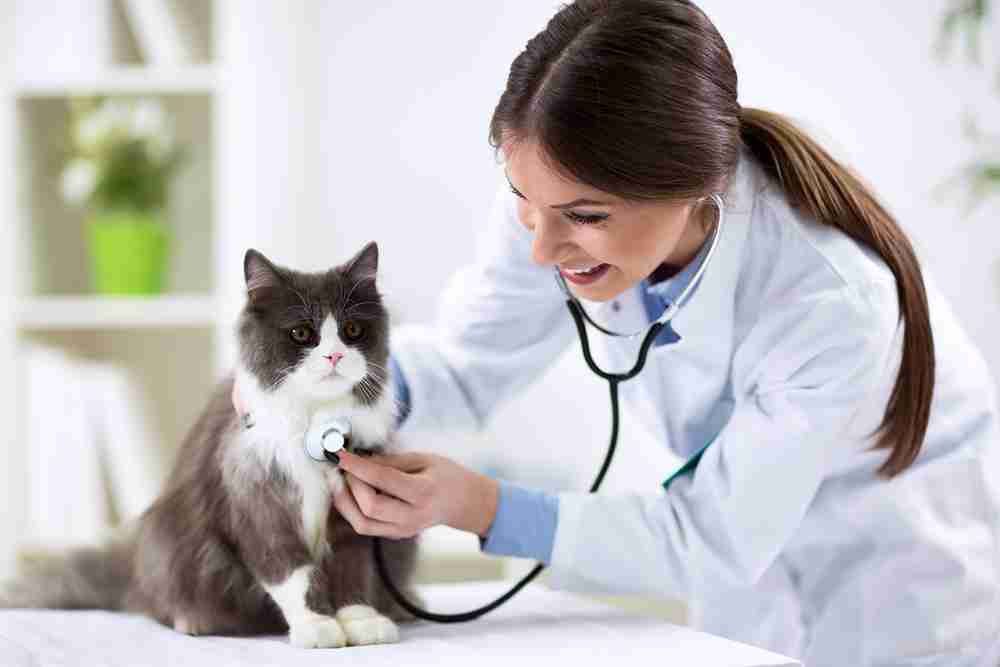
Endorsed by Experts, Trusted by Pets Parents!
Shop Combo
-
Soft & Shine: Omega+ (150ml) & Fur+ (45 Tablets)
Regular price Rs. 824.00 (20% OFF)Regular priceUnit price perRs. 1,030.00Sale price Rs. 824.0020% OFF -
Ultimate Health : Amino+ & Omega+ (150ml each)
Regular price Rs. 668.00 (20% OFF)Regular priceUnit price perRs. 835.00Sale price Rs. 668.00Sold out -
Mobility Care : Flexi+ (45 Tablets) & Omega+(150ml)
Regular price Rs. 1,160.00 (20% OFF)Regular priceUnit price perRs. 1,450.00Sale price Rs. 1,160.0020% OFF -
Coat Booster: Amino+ (250ml) & Fur+ (90 Tablets)
Regular price Rs. 1,192.00 (20% OFF)Regular priceUnit price perRs. 1,490.00Sale price Rs. 1,192.0020% OFF








